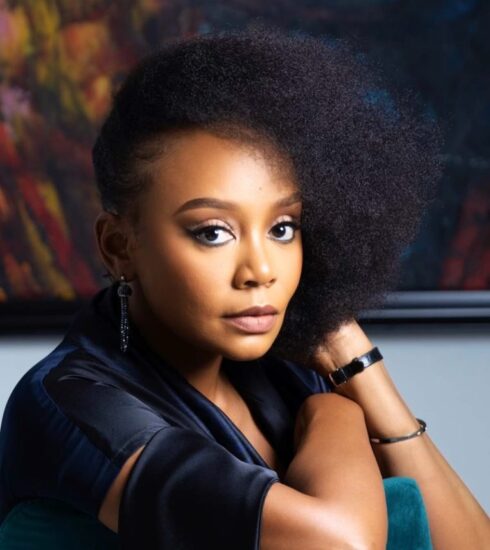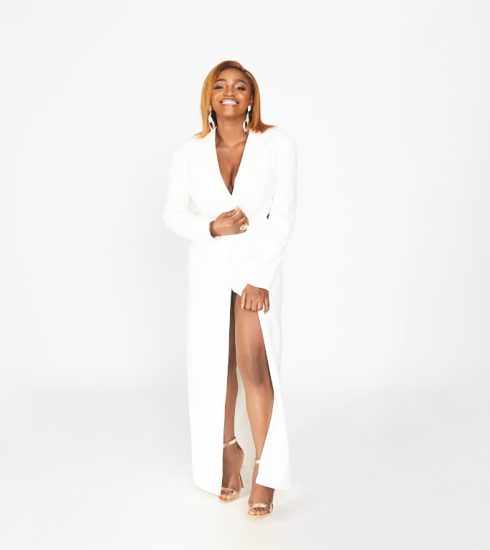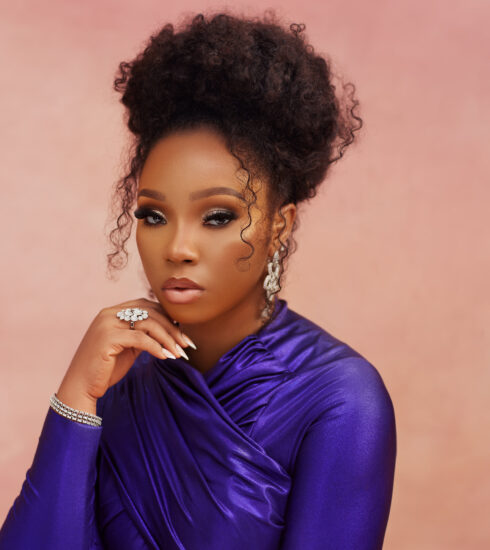Democracy Day: What’s Free?
Throughout the free world, the idea of democracy has been deeply associated with good leadership and the choice of the people. That is because, at its core, democracy is the belief in freedom and equality between people, or a system of government based on this belief, in which power is either held by elected representatives or directly by the people themselves.
The cornerstones of democracy include freedom of assembly and speech, inclusiveness and equality, membership, consent, voting, right to life, and minority rights.
These indicators of democracy are the backbone of the democratic system of government, especially freedom of speech.
In Nigeria, the freedom of expression is protected by section 39 (1) of the Federal Republic of Nigeria’s constitution. That means that every Nigerian has the right to express themselves through speech and any other communication channels they choose to explore.
Twitter is an American microblogging and social networking service on which users post and interact with messages known as “tweets”. Registered users can post, like, and retweet tweets, but unregistered users can only read them. Users access Twitter through its website interface or its mobile-device application software (app), though the service can also be accessed via SMS.
Twitter was created by Jack Dorsey, Noah Glass, Biz Stone, and Evan Williams in March 2006 and launched in July of that year.
In April 2021, Twitter announced that it was establishing its African headquarters in Ghana much to the displeasure of the Nigerians and government.
Social Media Regulation Bill
Anti-social Media Bill was introduced by the Senate of the Federal Republic of Nigeria on 5 November 2019 to criminalise the use of the social media in peddling false or malicious information. The original title of the bill is Protection from Internet Falsehood and Manipulations Bill 2019.
Attempts by the Nigerian government to regulate social media actually dates back to December 2015 with the proposal of a “frivolous petitions” bill which prescribed jail time and a $10,000 fine for social media posts found to be in contravention of the proposed law. But, the bill was withdrawn six months later in the face of widespread public criticism.
Twitter Suspension in Nigeria
Nigeria’s attempt at regulating social media is the latest in a considerable list of countries looking to implement questionable social media laws in moves that digital rights advocates have branded as brazen attempts to stifle online expression.
In May 2021, Twitter’s offices in Delhi and Gurgaon were raided by the local police. The raid came after Twitter labeled one of the tweets by Sambit Patra, a spokesman of the local ruling party BJP, as “manipulated media”. Twitter issued a statement, calling the police visit “a form of intimidation”.
On the 5th of June 2021, the Nigerian government officially put an indefinite ban on Twitter operations in Nigeria after the social media platform deleted tweets made by the President, Muhammadu Buhari in which he warned the south easterners of a potential repeat of the 1967 Biafran Civil War.
The Nigerian government claimed that the deletion of the President’s tweets factored into their decision but it was ultimately based on “a litany of problems with the social media platform in Nigeria, where misinformation and fake news spread through it have had real world violent consequences”.
The government of Nigeria also alleges that Twitter was being used to undermine “Nigeria’s corporate existence”.
Perks And Demerits
Since the invention of Facebook and Twitter, communication has been redefined at a level nobody saw coming. An innovation that has since become part of our everyday fixtures as humans, the merits of social media platforms cannot be overstated. With the ability to reach a large number of people within and outside the country, politicians have oftentimes used Twitter as a campaigning tool as was evident with this present administration. How do you spread propaganda to an array of well-informed Nigerians with access to the internet? Twitter has been the most effective tool to disseminate political agenda, a space leveraged by this government in a successful bid to unseat the previous government. Because of its close-knit community aesthetics, Twitter has also been a space to call out the government and its officials whenever they are out of order. A nation with a clear misunderstanding of what basic human rights entail, Nigerians have had to turn to Twitter to seek justice expeditiously since its prominence in today’s digital world. As expected, this was the premise that helped the #EndSARS outcry gain global attention and ultimately provoke this administration’s wrath.
The perks of these apps are way too many, however, one that is readily backed up by statistics is its effect on the economy. It would not be far-fetched to say that Twitter has created more jobs for youths all over the country than this administration has managed to in 6 years of power thus far. With opportunities ranging from page/account managers, online vendors, influencers, socio-political commentators to digital marketing firms, Twitter provides clearer and more diverse options to better tackle the alarming unemployment rate amongst the nation’s youths in comparison with this administration’s terrible attempt to refurbish yesteryear’s alternatives such as agriculture and cow rearing. According to reports, Nigeria currently loses approximately 9 billion Naira for every hour that her people don’t have access to the microblogging platform. For an already tanking economy, putting more people out of jobs is a disastrous decision to make.
Although the perks are limitless, there’s the other valid argument of the app being exploited as a hub for fake news circulation in the country. Perhaps one of the biggest disadvantages of social media sites, the volume of information flying across different social media platforms allows several potentially dangerous fake news to slip through the cracks. The regulation could be better in that regard, with Twitter working as smart as possible to tackle it. A powerful statement of intent was made on the 6th of January when The United States’ former President, Donald Trump had a series of his tweets spreading misinformation about the election flagged, deleted and himself ultimately permanently banned from the platform altogether. Similar but still less daunting to what happened with General Muhammad Buhari whose single tweet was deleted by the company for flouting its regulations and inciting violence against the IPOB community… Exactly what Donald Trump did in the build-up to the Capitol Riot.
Twitter’s Relationship With World Governments
Operated as a private entity with its Terms and Conditions to connect users all over the world, Twitter has oftentimes meddled in politics and governments.
Nigeria joins China and North Korea in a list of five countries to currently have no access to Twitter due to a ban imposed by their governments. The list also includes Turkmenistan and Myanmar, with Nigeria the only non-Asian and allegedly Democratic Republic on the list. On the other hand, India has been censoring the whole internet since 2006 as they have over 1000 websites blocked. Their battle with Twitter however has been as interesting as well as routine. The Indian government flopped at handling the COVID-19 pandemic and Indians all over Twitter voiced out their collective dissatisfaction. The Indian government in response immediately ordered Twitter to take down tweets from high profile users that criticised its handling of the pandemic. Another ongoing case to have prompted the Indian government to reach out to stifle Twitter’s operations within the country is the ongoing 10-month old Farmers’ Protest. India’s relationship with the microblogging platform has been a typical case of a government trying to forcefully silence and disenfranchise its people by regulating or eventually banning the most effective platform they have to air their criticisms directly at their administration; a playbook the Nigerian government is copying from.
Although still an indefinite ban, there’s a slight ray of hope that it could be overturned as seen in countries such as Egypt, Turkey, Uganda, Pakistan and the UAE.
Reactions To The Ban…
Shortly after the ban was announced and eventually implemented, President of the Nigerian Bar Association, Olumide Akpata, made a series of tweets stating the NBA’s dissatisfaction with the ban and ordered that the Federal Government make a reversal in its ruling or expect a challenge from the Nigerian Bar Association.
This was before Oyo State Governor, Seyi Makinde, took to the same Twitter to condemn the Federal Government’s dictatorial ruling. The following week would have PDP members of the Nigerian House of Representatives walked out of a meeting originally organised to call the Minister of Information, Lai Mohamed, who had single-handedly ordered the ban without seeking any legislative approval, to order. The meeting ended with Speaker Femi Gbajabiamila (an APC member) flagging down his colleagues’ prayers of investigating and overturning the ban.
Prominent religious leaders such as the General Overseer of The Redeemed Christian Church of God, Pastor E.A. Adeboye and the Founder of Winners Chapel, Bishop David Oyedepo, have also voiced out their objection to the ban stating that its implementation is against the United Nations jurisdiction of basic human rights to freedom of expression and with their churches all across the globe, they need a medium like Twitter for easy access to their congregation worldwide.
On the other side of the fence is Kaduna state Governor, Nasir Ahmad el-Rufai; former Presidential aspirant, Adamu Garba; Nollywood veteran actor, Yemi Solade, amongst others, applauding the Federal Government for taking a bold but correct decision to deal with the big tech company.
On the international scene, former US President Donald Trump, congratulated Nigeria on Tuesday for blocking access to Twitter in the country indefinitely, saying more nations should follow suit.
“Congratulations to the country of Nigeria, who just banned Twitter because they banned their President. More COUNTRIES should ban Twitter and Facebook for not allowing free and open speech,” Trump said in a statement.
“Who are they to dictate good and evil if they themselves are evil? Perhaps I should have done it while I was President. But [Facebook CEO Mark] Zuckerberg kept calling me and coming to the White House for dinner telling me how great I was.”
The sole purpose of creating a product is consumption. This is an undeniable fact and usually, profit comes after consumption because they work hand in hand. Either the product was created out of emotion or just as a social experiment, financial expectancy is not always a distant memory. So we can hold the Twitter owner, Jack Dorsey to that merit, right?
Dubbed Uncle Jack by Nigerian youths, the 44-year-old CEO has publicly expressed his affinity for the Nigerian culture and people. In 2019 he described himself as “grateful to finally be in Nigeria.” His visit to Nigeria, as well as three other African countries, certainly had a rockstar feel to it, but it wasn’t to weigh in on whose Jollof rice reigns supreme.
Nigeria stands tall amongst a select few leading in technology in Africa. Mobile penetration in the country hit 50% as of January 2021 which means in a populace of 208.8 million citizens, 104.4 million were Internet users and 93.3% accessed the Internet via a mobile phone. In addition, the acquisition of Paystack- a fintech start-up company founded by two Nigerian youths by Stripe, an American financial services company in 2020 is an excellent testament to that.
Although the latter occurred further into the future, his arrival unconsciously affected its growth into becoming a company worth 200 million dollars. Let’s not also delude ourselves with the thought that Jack is not aware that a sizable morsel of his consumers are Nigerians and regardless of his support in the past, he’s going to put his financial interests first above sentimentalities.
As Nigerians, we should look at this analytically. What exactly does Jack Dorsey want with Nigeria? Does he have all his cards on the table or does he have an ace up his sleeve? These are questions I’d like to assume that the Federal government had considered before issuing a ban on the social media platform swiftly stating that Twitter is” capable of undermining Nigeria’s corporate existence.”
Just as a leopard never changes its spots a government never tells its citizens the full story. It is up to the voters to fill in the blanks and at least try to make sense of what exactly could be a reason for this nationwide ban.
A plausible explanation could be taxation. If the government could join countries like the UK and the US in taxing Twitter for operating and substantially influencing the affairs of the nation as well as a business, perhaps that might cause the government to reconsider their stance on the ban. Once this step has been taken, the likes of Instagram and Facebook will have to follow suit. This might also just be an elaborate tantrum to get Twitter to reconsider setting up camp in Ghana and take a U-turn back to Nigeria.
Regulation of Twitter is yet another angle of exploration. The issue the current administration has against Twitter is its being an advocate for free speech. Filtration of what gets out into the world through media is extremely important and the power of the “what’s happening?” line threatens the stability of a country. And in Nigeria, where 93.3% of the nation is armed with smartphones, the country is 230 characters away from being international news. This might be a way to question and hold Twitter accountable against future circumstances.
A recent statement by Nigeria’s information and culture minister buttresses the intention of the government to crack down on Twitter and other social media platforms functioning in the country. Lai Mohammed’s directive to the regulatory agency the National Communication Commission is that all OTT and US social media giants commence licensing processes locally before the ban is called off and are in no way stifling on its people’s freedom of expression.
He explains that Twitter needs to agree to not be a tool for those who are threatening the corporate existence of Nigeria. Mohammed said “Whether it is Netflix, Iroko or Facebook…they are all doing business in Nigeria, making money and they are not paying taxes. This is in addition to being able to regulate them. They are making billions of naira out of this country and they are not paying tax. That cannot be allowed to go on.”
The minister had this to say after Twitter subsequently approached the government on a way of resolving the problem that led to the ban. The government is also aware that the longer Twitter is inactive the more money they lose and they intend to use this as a bargaining chip until tax is paid and rules are adhered to.
On numerous occasions, this platform has had fingers pointed at it blaming it for the dissemination of fake news across the country but it would be unfair to evaluate the cons without the pros. Sometime this year, Twitter helped expose a family of ritualistic killers who sold human parts to the highest bidder but that wasn’t a big enough pro to outweigh its cons.
Could this be an end to Twitter as we know it? Has the last thread that holds the online citizenry and solidarity amongst young Nigerians reached its breaking point? Despite the administration saying it’s a temporary ban as inhabitants we know “temporary” can be a very very long time.
In addition to the cloak of unrest and tension blanketing the country, the day set aside to celebrate a historic election considered to be free and fair in Nigeria and the end of military rule just past. It can’t help but leave Nigerians second-guessing the meaning of democracy. After all, it was the tweet of the ex-military and current head of state that led us to where we are right now.
Twitter users can make that argument as well. Democracy is a government of the people by the people, for the people but it hasn’t felt that way for over 50 years. The emergence of Twitter served as a bandage over a gaping wound, a medium to air their thoughts and a true exercise of free speech. Will Uncle Jack come to Nigeria’s aid again or can Twitter choose to call the Nigerian government’s bluff and ride the ban out? Nobody knows but one thing is for sure this holiday will be marked with a different emotion from solidarity because there’s enough nostalgia wrapped in green, white, green paper to go around this year.






